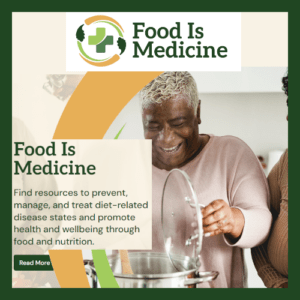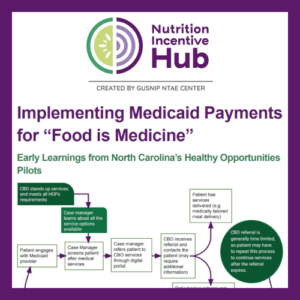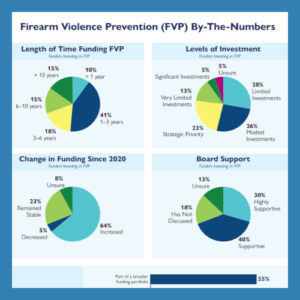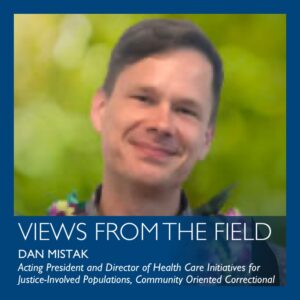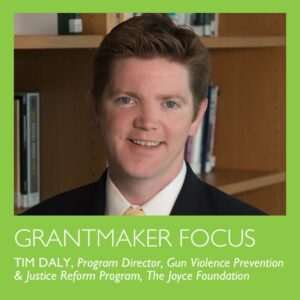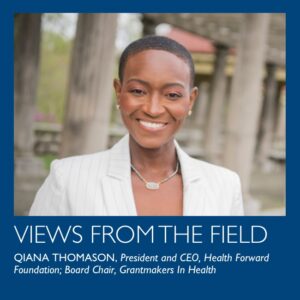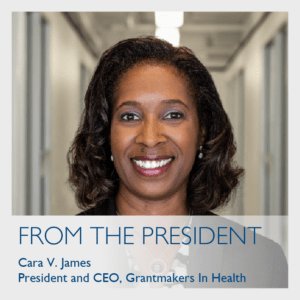Upcoming Events
Past Events
Featured Resources
New America Report Examines Subminimum Wage for Disabled Workers
Under the Fair Labor Standards Act, employers are allowed to pay disabled workers less than the federal minimum wage, which has significant impacts on these workers’ health and well-being. A report from New America examines, state by state, the policies that drive the use or elimination of the subminimum wage, as well as the programs each state provides to more comprehensively support individuals with disabilities as they seek meaningful employment and fair wages.
HHS Launches New Food is Medicine Virtual Toolkit
The Toolkit was developed in response to the National Strategy on Hunger, Nutrition, and Health and to support communities design and implement effective Food is Medicine interventions.
Case Study Examines Early Learnings in Using Medicaid Payments for Food is Medicine
A new resource commissioned by the Fair Food Network examines the early learnings from the Healthy Opportunities Pilots effort in North Carolina to use federal 1115 Medicaid Demonstration Waiver funding to scale and sustain community-based implementation of a combination of produce prescription programs, medically tailored meal programs, and nutrition education.
Explore Health Equity and Social Justice Topics
Recent Items - Climate and Environmental Health
The Health Sector is a Critical Voice in Climate Advocacy
Recent Items - Health Equity
Let’s Take Courageous Steps Together in 2025
Recent Items - Healthy Eating/Active Living
The National Peanut Board: April 2025
Recent Items - Housing
Marin Community Foundation: October 2024
Horizon Foundation: September 2024
Recent Items - Justice Reform
Recent Items - Social Determinants of Health
Marin Community Foundation: October 2024
Recent Items - Violence Prevention
The Joyce Foundation
Latest Resources
Philanthropy, Stewarding a Just America
In a time of intensive action to dismantle policies and practices that protect the well-being of all Americans, where chaos is the principal strategy to overthrow the will of and care for the American people, philanthropy must remain rooted in what is legally and morally right.
The Value of Convening Grantees to Navigate Uncertainty Together
In moments of chaos, it’s natural for nonprofits to feel uncertain—unsure of what’s next and how to move forward. But uncertainty can also be a powerful catalyst for connection and action. During the COVID-19 pandemic, The Healthy Food Community of Practice doubled down on its efforts to bring nonprofits together and helped them build lasting relationships, collaborate in new ways, and innovate around shared challenges.
Using the UN Sustainable Development Goals to Advance a Bold Racial Equity Agenda at a Critical Moment
“What started out as a natural disaster became a man-made disaster.” This is how President Obama described Hurricane Katrina, referring to both the disparate and devastating impacts on New Orleans’ Black community, and the historical and structural inequity that created the conditions for devastation.
New Grantmakers In Health Survey Finds a Significant Growth in Firearm Violence Prevention Investments Among Health Funders
Washington, DC, March 14, 2025—At a time when firearm violence is a leading cause of death for children and teens, a new Grantmakers In Health survey of health funding organizations found that philanthropic investments in firearm violence prevention are growing in terms of both the number of funders supporting this work and the dollar amounts…
Pottstown Area Health and Wellness Foundation: March 2025
The Pottstown Area Health and Wellness Foundation’s Spring 2025 grantmaking cycle opened March 1, 2025. All grant applications are submitted through AkoyaGo, the foundation’s grants portal. The foundation no longer requires a letter of intent for grant applications.
What Do We Stand For?
At a moment when so much has been described as “unprecedented”, and so much of what we value is being attacked, we need to ask ourselves as individuals, organizations, and a field, what do we stand for? What values do we hold, and what will we do and say to defend them?
Reports and Publications
Seeing the Future with 20/20 Vision: Michael Marmot Plenary Address from the 2009 GIH Annual Meeting
Read the 2009 annual meeting plenary address “Building a Global Movement for Health Equity” by Michael, Marmot, Chair of the Commission on Social Determinants on Health, World Health Organization.
Seeing the Future with 20/20 Vision
The resource portfolio from GIH’s 2009 annual meeting Seeing the Future with 20/20 Vision features six essays.
Social Policy Is Health Policy
Decades of research and practical experience in the United States and other countries have shown that a number of economic and social factors – education, income, occupation, wealth, housing, neighborhood environment, race and ethnicity – have a powerful influence on health. This link between social position and health status is predictable, persistent, problematic, and – we hope – preventable.
Strengthen your knowledge, skills, and capacity.
GIH focuses our programming around five areas that are critical to achieving better health for all.
We invite you to explore the resources available on our focus areas pages, browse content in more specific issue areas, and to connect with GIH staff to discuss how we can partner and support your work.


